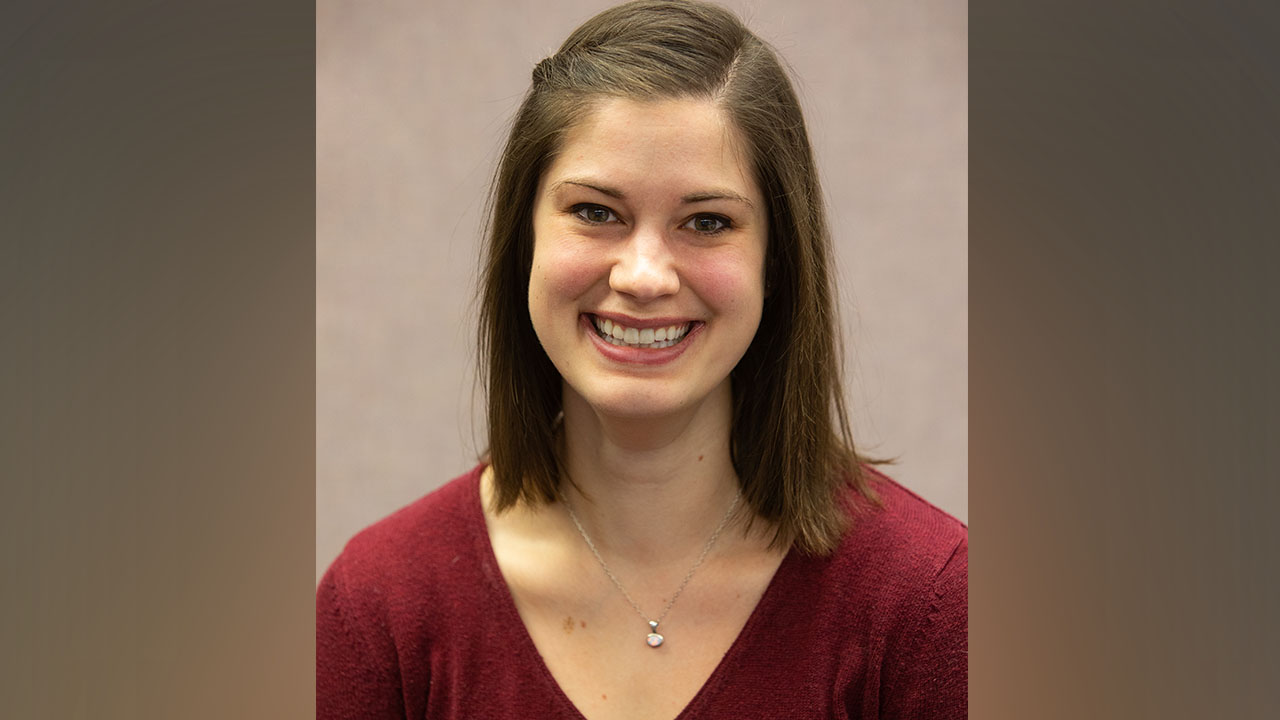
“This is the academic fairytale,” said Dr. Jenna Zucker, associate professor of psychology. “I’m teaching in my hometown. It’s incredible. It worked out perfectly. I’m very happy to be here.” Zucker joined the University of Wisconsin-Platteville Department of Psychology in 2019 and teaches courses focused on development.
Zucker’s experience as an undergraduate researcher at UW-Eau Claire inspired her to pursue academia and become a college professor. She earned her master’s and doctorate degrees in educational psychology from the University of Kansas.
“I like that college students really have a goal in mind when they come into my classes,” she said. “Trying to broaden their horizon and trying to take advantage of those “adolescent into early adulthood” interests in the world. The experience of being out on your own for the first time and being exposed to a lot of new ideas. All of that is really interesting to me.”
As her students leave her classroom, Zucker hopes they connect to a discussion topic and take away a newfound appreciation of psychology.
How did your interest in the field of psychology begin?
I was one of the rare people who declared my psychology major going into college and stuck with it. I knew I wanted to do something that had to do with people, but in terms with this career path it really came about in my undergrad experience when I did research. I got into a professor’s lab and fell in love with it and thought I could do this long term. I also liked the idea of teaching. I teach child development and adolescent development. Kids fascinate me and doing research with children is very interesting. I like that this is a job where I can put all those pieces together, and then share that excitement and enthusiasm with students who hopefully are just as excited about the subject as I am.
What qualities have you seen in UW-Platteville students that have impressed you the most?
I have taught a variety of classes at this point. I think there is a hunger for the application piece that students want to make it relevant for themselves. That push from students really helps me to have a direction within the classroom. I think they are good at asking questions and asking clarification questions when they don’t understand something. They want to get to know you as the professor and ask good questions to help facilitate that conversation.
What are your research interests? Are you currently working on any research projects?
I study the way that white kids develop and their understanding of race. The way they understand race and the role, particularly the way they interpret non-messaging from their parents. I’m interested in the color-blindness and what that actually looks like to a child.
I received the new faculty start-up award last spring. I do have an idea for research, which was looking at adolescents and their intercultural sensitivity within the local area. Unfortunately, because of schools being cut so abruptly last spring I wasn’t able to do that. I’m now trying to get that project up and started again.
How does your research correlate with the social justice movement we are seeing across Wisconsin and the United States?
I think one of the things coming to light right now is white people are having a reckoning with the fact we don’t know or understand the experience of people of color. A lot of times we have taken a color-blind approach. “I don’t see color” is only really helpful for white people. It’s a coping mechanism, but that’s not necessarily helpful in the broader movement. I think there is starting to be this realization that the way we [as white people] have learned about race, the way we talk about race, it needs to be more nuanced and more inclusive. It doesn’t need to wash over – “I don’t see it”, “let’s put a band-aid on it.” Let’s really get into the ideas of these things.
What is the most rewarding part of your job?
When you get a really good email from a student that they remembered something you said in class, but it’s been weeks or months later. Or watching a student get it. Talking about something you are passionate about and watching it connect in the eyes and faces in your students. It’s truly the best feeling. It’s sharing what I like and what I love about the psychology field, and having other people get really excited about it. It’s just the best.